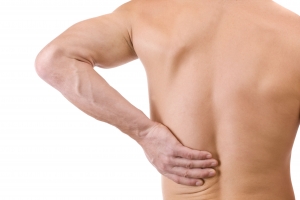Back pain can happen to anyone. Studies show that 80-90% of people will suffer back pain in their life and that at any given time approximately 30% of the population are suffering from pain. It can be debilitating, but too often we ignore the pain or mask it with an anti-inflammatory. Here are some interesting facts on back pain:
• Approximately 1 in 11 Australians suffer from back pain – that’s 2,000,000 Australians!!
• 280,000 Australian’s are forced into early retirement due to back pain and arthritis.
• The cost of lost workforce to Australia is $12 billion
• Sufferers are 2.5 times more likely to report disorders such as depression
So what can you do to improve your health and vitality? I’ve put together a list of some risk factors that can contribute to your likelihood of getting back pain:
• Getting Older. Yes this happens to everyone. Some people can age gracefully and others feel every year in their body. As we get older the body does start to degenerate due to repetitive stress and strain on the joints, ligaments, tendons and muscles. Back pain is more common the older you get, and most people will experience their first instance of pain somewhere between 30 to 40 years of age. This can be due to the body starting to stiffen and tighten after the age of 30.
• Poor physical fitness. If you don’t use it, you lose it. Keeping your body stretched and maintaining good strength through your core and lower abdominals will help maintain your back and avoid pain.
• Being overweight. A diet high in calories, sugar or fatty foods will make you gain weight. And if you are overweight you increase the load on your knees and your back. For every kilogram overweight you are, it is equivalent to an extra 10 kilograms on your back and knees. Therefore too much weight can stress the back and cause pain.
• Your job. If you have to lift, push, or pull while twisting your spine, you will get back pain eventually. When you are bending and twisting, this increases the pressure on the intervertebral discs, and causes tearing of the annular fibrosis (fibrous rings that hold the jelly (nucleus pulposis) in place).
On the other side if you work all day at a desk and do not get up regularly, you will tighten the muscles in your back and cause the joints to become dysfunctional, leading to back pain.
• Smoking. We know how this affects our lungs, heart, arteries and health, but when you smoke you reduce the amount of nutrition to your back. For 20 minutes after a smoke, you have stopped the nutrition to your back discs, which eventually will cause them to dehydrate and tear (bulging disc). Hence back pain. Also smokers have what is termed a ‘smoker’s cough’. Constant coughing increases the pressure on the intervertebral discs, and predisposes them to further tearing. Lastly people who smoke, are normally slow to heal due to the alterations in their cardiovascular system, so their back pain normally takes longer to resolve itself.
• Posture. If you don’t stand up tall, you will increase the stress on your back joints, tendons ligaments and muscles, and wear them out sooner rather than later. Posture is one of the keys to a healthy back. In today’s day and age, there are many things that influence our posture, such as electronic devices (tablets, iPhone, iPad, computers).
The normal posture in today’s society is one of forward head carriage, and slouched shoulders, which is almost a de-evolution of the human species back to looking like a primate. If you want to minimise your chances of getting back pain, stand up tall by lifting your chest up, getting your ribs out of your pelvis and walking with your thumbs forward.
• Hereditary. Unfortunately you can’t help this. You were born with it and it was passed on from a loved one. Some forms of arthritis can have a genetic component and affect the back and cause pain. Such as ankylosing spondylitis, psoaritic arthritis, or rheumatoid arthritis
• Other diseases. In rare cases cancer can cause back pain
If you would like more information or would like to book an appointment at Neurohealth Chiropractic – please call the clinic on 9905 9099 or email us admin@neurohealthchiro.com.au or fill in the contact form from our website www.neurohealthchiro.com.au
Sign up to receive Neurohealth Chiropractic’s Free monthly health newsletter on the Right Hand Side of this page. Filled with great information and lots of easy health tips to keep you at Optimal Health!
This article is written by Dr. Steven Cannon, Chiropractor – Neurohealth Chiropractic




